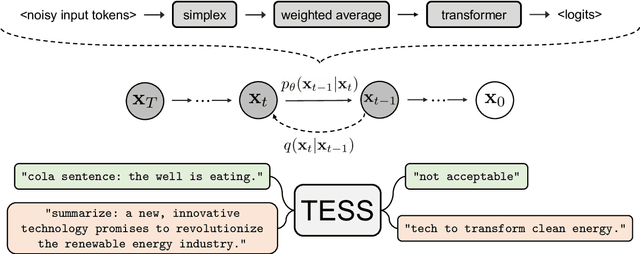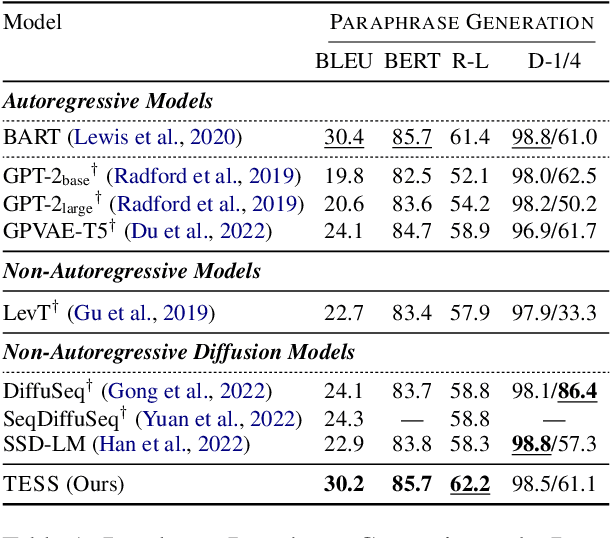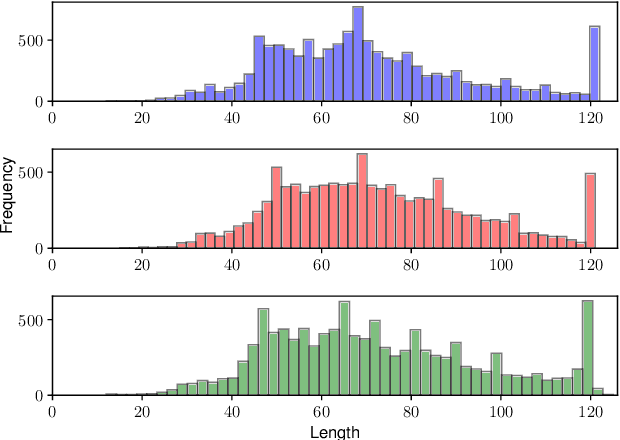TESS: Text-to-Text Self-Conditioned Simplex Diffusion
Paper and Code
May 15, 2023



Diffusion models have emerged as a powerful paradigm for generation, obtaining strong performance in various domains with continuous-valued inputs. Despite the promises of fully non-autoregressive text generation, applying diffusion models to natural language remains challenging due to its discrete nature. In this work, we propose Text-to-text Self-conditioned Simplex Diffusion (TESS), a text diffusion model that is fully non-autoregressive, employs a new form of self-conditioning, and applies the diffusion process on the logit simplex space rather than the typical learned embedding space. Through extensive experiments on natural language understanding and generation tasks including summarization, text simplification, paraphrase generation, and question generation, we demonstrate that TESS outperforms state-of-the-art non-autoregressive models and is competitive with pretrained autoregressive sequence-to-sequence models.
 Add to Chrome
Add to Chrome Add to Firefox
Add to Firefox Add to Edge
Add to Edge